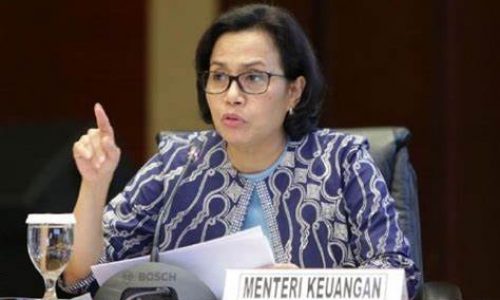In this digital era, anything can be accessed using the internet. Starting from online shopping, ordering food online, to online-based transportation. E-commerce or electronic commerce is all forms of trade in goods or services that use internet intermediary media. With this online shopping, it makes it easier for many parties in terms of transacting. However, there are still many people who want to act evil around us. So that Indonesian law also prepares a law to ensnare fraud perpetrators in buying and selling online.
Governing laws and regulation
- Law No. 8/1999 concerning Consumer Protection
- Circular Letter (SE) of the Minister of Communication and Information (Kominfo) No. 5/2016 concerning Limitations and Responsibilities of Platform Providers and Electronic Commerce Merchant (Safeharbour)
- Government Regulation (PP) No. 80/2019 Concerning Trading Through Electronic Systems/Minister of Trade Regulation (Permendag) No. 50/2020
- Government Regulation (PP) No. 71/2019 concerning Electronic System and Transaction Operators/ Ministerial Draft Regulation (RPM) Kominfo for Private Scope
Consumer protection governance in e-commerce platforms
- Ministry of Communication and Information: Gambling, Pornography, Terrorism
- POM Agency: Drug and Food Control
- Ministry of Human Rights: Copyright Infringement and Counterfeit
- Ministry of Trade: Supervision of the Circulation of Goods and Services
- Ministry of Health: Medical devices
- National Consumer Protection Agency (BPKN)/Consumer Dispute Settlement Board (BPSK): Consumer Protection Dispute
Rights and obligations of business actors
Business actor is any individual/business entity, whether in the form of a legal entity or not a legal entity established and domiciled/carrying out activities within the jurisdiction of Indonesia, either alone or jointly through an agreement to carry out business activities in various economic fields.
Right
- Receive payments in accordance with the agreement regarding the conditions and exchange rates of traded goods and/or services
- Get legal protection from consumer actions with bad intentions
- Doing proper self-defense in the legal settlement of consumer disputes
- Rehabilitation of good name if it is legally proven that consumer losses are not caused by traded goods and/or services
- Rights regulated in other statutory provisions
Obligation
- Have good intentions in carrying out their business activities
- Provide correct, clear, and honest information regarding the condition and guarantee of goods and/or services
- Treat or serve consumers correctly and honestly and non-discriminatory
- Guarantee the quality of goods and/or services produced and/or traded based on the provisions of the applicable quality standards
- Provide opportunities for consumers to test or try certain goods and/or services
- Provide compensation, compensation and/or compensation for losses due to: (i) defective goods; and/or (ii) goods that are not in accordance with the agreement
Prohibited acts related products
Producing goods or providing services that:
- does not meet/according to the required standards
- does not match label statements, measurements, quality, composition, efficacy, description and benefits as promised or advertised
- does not include the expiration date or the best time to use the item
- does not follow the provisions for halal production, as stated in the “halal” statement on the label
- does not include information and/or instructions for use in Indonesian in accordance with applicable regulations
- does not provide complete and correct information on defective products or
Promotion and advertising
Offer, promote or advertise products and/or services improperly, especially in:
- prices and rates
- use of goods/services
- conditions, dependencies, guarantees, rights or compensation for goods/services
- discounts and gifts offered
- danger of using goods/services
Risk of violation of consumer protection regulations
- Criminal sanctions
- Jail or fine
- Additional criminal sanctions:
- Confiscation of certain goods, Announcement of judge’s decision
- Payment of compensation;
- Orders to stop certain activities that
- cause consumer losses; Obligation to withdraw goods from circulation; or
- Revocation of business license.
- Administrative Sanctions
- Obligation to pay compensation max. IDR 200 million
- Civil action
- Compensation / compensation value: unlimited









